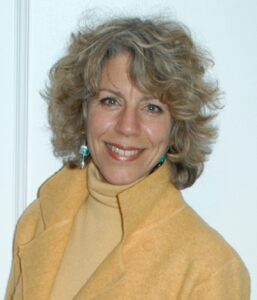A Fine Line: Navigating the Professional World
From Occupation to Profession
Early childhood education achieved professional status in Ontario with the passing of the Early Childhood Educators Act, 2007, which created the College of Early Childhood Educators. The Act and the College confirm that only individuals with a specialized set of knowledge and skills in child development can practise the profession of early childhood education in this province.
Claudia Newman, a trainer and consultant in professional ethics and boundaries, says it is important for registered early childhood educators (RECEs) to recognize that as members of a professional self-regulatory body, they are now considered professionals in the eyes of the public. Furthermore, RECEs must understand that society regards professionals as individuals whose work comes with a high degree of power and responsibility. “It’s recognition that your work can do good, but also cause harm,” she points out.
Being a Professional
What exactly does the identity of professional mean for RECEs? As professionals, how should RECEs carry themselves in the workplace? Unequivocally, being a professional means knowing the rules that govern your profession and applying those rules in your every day practice. Newman says that professionals understand first and and foremost that they serve the public and meet a public need. “A professional is in a position of trust. Being a professional means that you put the needs of your clients first, that is the children and families with whom you work,” she explains.
Professionals are also expected to carry a high degree of self-awareness – they know their strengths and weaknesses and the rules that apply to the work they do. “When in doubt, professionals have the courage to ask for help or assistance,” says Newman. “They know their boundaries and put a plan in place to rectify any mistakes and learn from them.”
Recognizing Professional Challenges
In the workplace, challenges are inevitable. In particular, issues arise when professionals struggle to clarify the boundary between professional and personal behaviour. Newman says this struggle happens when professionals inadvertently allow their personal bias to influence their behaviour in the workplace or when their interpretation of the rules causes conflict and issues.
A common example in today’s workplace involves high staff turnover and the effect it can have on professionals in certain sectors. In early learning, for example, new staff require training and time to get to know programming routines and the unique needs of children and families. During the transition, existing staff must balance extra demands and also maintain high professional standards.
One challenge that can quickly arise in a situation where someone is stretched thin is less time in their busy day for observation and documentation. “While it may be seen as a workload or time management issue it is fundamentally an ethical one, for observation and documentation is a critical component of the work that you do,” Newman says. Even though the individual wants to maintain high professional standards, they simply don’t have time for documenting. Is their professional behaviour compromised?
Newman says that while documentation can be a tedious task, it serves an important purpose that aligns with an ethical and professional principle: continuity of care. Documenting is especially important for professionals who are providing early learning and care to children and critical information to families. Thus, the simple act of skipping documentation can have damaging consequences.
Facing Challenges
While professionals have many challenges to face in the workplace, they also have tools and resources to meet those challenges. Newman has two tips for those who want to be proactive in maintaining professional behaviour.
The first is to recognize when you need help, and to have the courage to go seek it. Supervisors and managers can offer a lot of guidance with their years of experience in the sector and professionals can learn and grow through enhancing their skill sets and seeking out continuous professional learning opportunities.
Newman’s second suggestion is to be aware that professionals can step over the line between personal and professional both intentionally, and inadvertently. Children and families can also push professional boundaries. The responsibility professionals have is to know what is and is not appropriate, and to think back to the guiding principle of protecting the public interest. Professionals also need to clarify the expectations of two key players: the organizations they work for and the regulatory body they belong to. When in doubt, they need to clarify the rules and procedures they must abide by as members of their profession.
